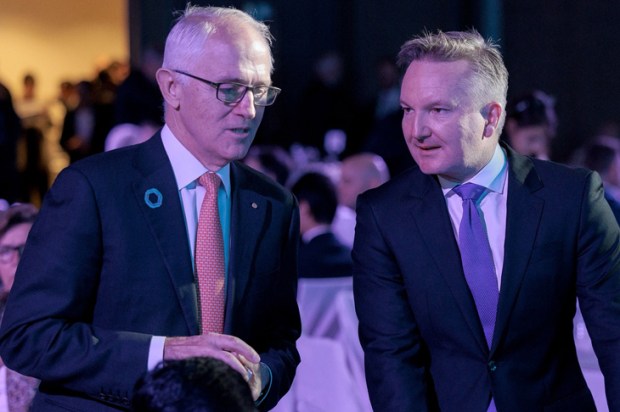All I can say is thank God for the High Court of Australia. I’m not referring here to the case of George Pell’s unanimous acquittal – although that was a great outcome – but to a recent case involving two truck drivers.
Here’s the story. These two truck drivers undertook deliveries for a lighting company, ZG Operations Australia, for over thirty years. They were initially engaged as employees but after a few years, the company suggested they become contractors.
They both formed partnerships with their wives, bought the delivery trucks (with company branding) and wore uniforms bearing the company logo. They worked relatively regular hours.
After thirty years of engagement, these two drivers took legal action to establish that they had really been employees all along and, as such, should be paid leave entitlements as well as superannuation contributions. They were successful before the full bench of the Federal Court which concluded that the ‘substance and reality’ of the relationship meant that they were in fact employees notwithstanding the contracts they had signed.
But the matter was appealed to the High Court which was not having a bar of this argument. A distinction was made between a ‘contract of service’ (an employee) and a ‘contract for services’ (a contract). The judges concluded that it was completely unnecessary to investigate the details of the engagement because contracts had been entered into and that was that. It was a big win for the sanctity of contract.
There are some very important excerpts from the High Court decision, including the following:
– Even if poorly drafted, the contract clarified that the relationship was one of contractor, not employee… The drivers were not employed by the company. They were members of partnerships which carried on the business of providing services for the company.
– The willingness of the respondents to display the company’s branding on their trucks is quite consistent with a sensible, self-interested response of an independent contractor to legitimate commercial pressure from its best customer.
– The employment relationship with which the common law is concerned must be a legal relationship. It is not a social or psychological concept like friendship.
– [The fact that the drivers’ entry into the contract] may have been brought about by the exercise of superior bargaining power by the company did not alter the meaning and effect of the contract.
– The task of raking over the day-to-day workings of a relationship spanning several decades is an exercise not to be undertaken without good reason having regard to the expense to the parties and drain on judicial time involved in such an exercise.
This decision follows a very sensible and commercially significant one handed down by the High Court last year dealing with a casual employee Mr Rossato, who worked for a labour-hire company specialising in mining. The case revolved around whether or not Mr Rossato, as a regular casual, should be repaid for the leave entitlements of a permanent worker. (He had been specifically offered a casual employment contract, although the casual premium attached to his hourly rate was not completely obvious.)
Again, the Court upheld the sanctity of contract by concluding that Rossato was engaged as a casual employee and the fact that he worked mainly regular shifts did not negate his contractual status. As a result, the company was not required to provide any back pay. The bigger issue here was the uncertainty surrounding whether regular casuals more generally could be entitled to back pay notwithstanding their casual pay premium (generally 25 per cent on top of the base). There were estimates of up to $10 billion that might be payable, mainly by small businesses. While the federal government had managed to secure a solution to this problem through legislative amendment – one of the only changes the government was able to secure after minister Christian Porter’s ill-considered tripartite talkfest – it was heartening to have the High Court uphold the inviolability of contract.
Needless to say, these two decisions were not to the liking of either the unions or Labor. For the moment, it largely kills off the tactic used by some unions, particularly those covering construction, of trying to establish sham contracting to convert workers to employees (and possible union members).
They were however welcomed by the players in the gig economy – think here Uber, Deliveroo and the like. These companies see themselves as providing tech platforms to enable buyers and sellers to connect. Many of those who sign up to provide services using these platforms sign up to a number of them.
The conclusion drawn from the ZG case, in particular, is that as long as the contracts between the platforms and the providers of services are clear and entered into freely by the parties, then there should be no question of the worker claiming to be an employee along with all the associated entitlements.
The current situation in Australia contrasts with a number of other countries. For example, the Supreme Court in the UK – the equivalent of our High Court – has ruled that Uber drivers should be regarded as employees and be paid a minimum wage plus other entitlements. While Uber has remained in the UK, big adjustments have been made, particularly to the fares charged.
California – are you surprised? – is another place where the government has actively worked to thwart the gig economy by imposing all sorts of rules to restrict the employment of gig workers. In 2017, it passed a law called the Opportunity to Work Act or AB5.
By rights, it should have been called the ‘loss of opportunity to work Act’ because it sought to classify almost everyone who works for a company as an employee rather than an independent contractor. It was particularly directed at app-based ride hailing and delivery drivers. But it had unsurprising unintended consequences such as on freelance writers, who were subsequently exempted. After a well-funded campaign by Uber and other app-based companies, Proposition 22 was passed in November 2020, overturning AB5 in the main. Notwithstanding a number of legal challenges, it remains the case that Uber drivers and the like can be independent contractors in California.
The key message from these developments is that freedom of contract and the sanctity of contract are important elements in a well-functioning economy and labour market, particularly in the context of evolving technologies. The alternative of ideological politicians and meddling bureaucrats doesn’t bear thinking about, but is always a danger.
Got something to add? Join the discussion and comment below.
Get 10 issues for just $10
Subscribe to The Spectator Australia today for the next 10 magazine issues, plus full online access, for just $10.
You might disagree with half of it, but you’ll enjoy reading all of it. Try your first month for free, then just $2 a week for the remainder of your first year.














Comments
Don't miss out
Join the conversation with other Spectator Australia readers. Subscribe to leave a comment.
SUBSCRIBEAlready a subscriber? Log in